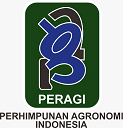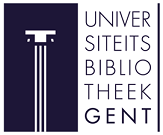Integrated Nutrient Management and Intercropping in Increasing the Productivity of Curly Chili (Capsicum Annum L)
Abstract
Curly chili (Capsicum annum L.) is one horticultural commodity with good development prospects. The productivity of chili plants in Indonesia is quite low. The cause is low land productivity due to intensive planting and excessive use of inorganic fertilizers. One way to overcome this problem is by combining inorganic and organic fertilizers. This research aims to obtain the proportions of various nutrient sources and types of intercropping that can increase the production of curly red chili plants. This research was conducted in June – December 2021 in Wonorejo Village, Poncokusumo District, Malang Regency. This research used a Randomized Block Design (RBD). (P0) chili monoculture (P1) chili + pakchoy (P2) chili + cabbage (F0) 100% inorganic (F1) 75% N + 20 t goat manure + PGPR 10 ml 1-1 (F2) 75% N + 20 t goat manure + PGPR 20 ml 1-1 (F3) 50% N + 30 t goat manure + PGPR 20 ml 1-1. The results showed that the P1F2 treatment: chili + pakcoy, 75% N + 20 t goat manure + PGPR 20 ml 1 showed high growth results, namely plant height, number of leaves and stem diameter, and the highest yield component per hectare, namely 8.6 tons/ha.
Keywords
Full Text:
PDFReferences
Ali, A., & Khan, M. S. (2021). Effect of Plant Growth-Promoting Rhizobacteria on Growth and Yield of Chili under Saline Conditions. Soil Science Society of America Journal, 85(1), 182-193
Cavite, H. J. M., Mactal, A. G., Evangelista, E. V., & Cruz, J. A. (2021). Growth and Yield Response of Upland Rice to Application of Plant Growth-Promoting Rhizobacteria. Journal of Plant Growth Regulation, 40(2), 494–508. https://doi.org/10.1007/s00344-020-10114-3
Chowdhury, S., & Shahid, M. (2018). Impact of Plant Growth-Promoting Rhizobacteria on Growth, Yield, and Quality of Chili Pepper (Capsicum annuum L.). Journal of Plant Growth Regulation, 37(1), 272-282.
Chandini, Kumar, R., Kumar, R., & Prakash, O. (2019). The Impact of Chemical Fertilizers on our Environment and Ecosystem Thesis work View project natural products View project. Chief Education, 35(February), 69–89. https://www.researchgate.net/publication/331132826
Chen, Y., Zhou, B., Li, J., Tang, H., Tang, J., & Yang, Z. (2018). Formation and change of chloroplast-located plant metabolites in response to light conditions. International Journal of Molecular Sciences, 19(3). https://doi.org/10.3390/ijms19030654
Maghfoer, M.D. 2018. Teknik Pemupukan Terung Ramah Lingkungan. Malang: UB Press.
Ghosh, S., & Patra, R. (2021). Role of Plant Growth-Promoting Rhizobacteria in Enhancing Growth and Fruit Quality of Capsicum annuum L. Journal of Soil Science and Plant Nutrition, 21(3), 728-739.
Gebru, H. (2015). A Review on the Comparative Advantage of Intercropping Systems. Journal of Biology, Agriculture and Healthcare, 5(9), 28–38. http://www.iiste.org/Journals/index.php/JBAH/article/view/21387
Gokul, D., Poonkodi, P., & Angayarkanni, A. (2020). Effect of integrated nutrient management on the growth and nutrient content of chili (Capsicum annuum L.). International Journal of Chemical Studies, 8(4), 2647–2651. https://doi.org/10.22271/chemi.2020.v8.i4ae.10040
Joudeh, N., & Hachem, S. (2019). Application of Plant Growth-Promoting Rhizobacteria (PGPR) to Enhance the Growth and Yield of Chili Plants. Agronomy Journal, 111(5),
Julianto, N., Widaryanto, E., & Ariffin, A. (2023). Efisiensi Penggunaan Lahan Melalui Pengaturan Pola Tanam Tumpangsari Bawang Merah (Allium ascalonicum L.) dan Cabai (Capsicum annum L.). Agro Bali : Agricultural Journal, 6(2), 350–360. https://doi.org/10.37637/ab.v6i2.1286
Kementan. 2020. Produktivitas Sayuran di Indonesia, Tahun 2015-2019. Sub-sektor Tanaman Pangan. Kementrian Pertanian. Jakarta.
Lobo, C. B., Juárez Tomás, M. S., Viruel, E., Ferrero, M. A., & Lucca, M. E. (2019). Development of low-cost formulations of plant growth-promoting bacteria to be used as inoculants in beneficial agricultural technologies. Microbiological Research, 219(October 2018), 12–25. https://doi.org/10.1016/j.micres.2018.10.012
Mishra, A., & Kumar, R. (2020). Effect of PGPR on Growth and Yield of Chili (Capsicum annuum L.) under Different Soil Conditions. International Journal of Agriculture and Biology, 22(2), 348-357.
Patel, Y. (2014). Evaluating growth and development of Cuminum cyminum L under different fertigations. November. https://www.researchgate.net/publication/269275132
Parvez, M. M., and H. S. Lee. 2023. "Optimizing Chili Pepper Growth with PGPR: Effects on Fruit Yield and Quality." Horticultural Science & Technology 41, no. 2: 142-155
Sa’diyah, N., Fitri, A., Rugayah, R., & Karyanto, A. (2020). Korelasi Dan Analisis Lintas Antara Percabangan Dengan Produksi Cabai Merah (Capsicum Annuum l.) hasil iradiasi sinar gamma. Jurnal Agrotek Tropika, 8(1), 169. https://doi.org/10.23960/jat.v8i1.3683
Shah, T., Tariq, M., & Muhammad, D. (2021). Biochar Application Improves Soil Respiration and Nitrogen Miner- alization in Alkaline Calcareous Soil under Two Cropping Systems. Sarhad Journal of Agriculture, 37(2), 500–510. https://doi.org/10.17582/JOURNAL.SJA/2021/37.2.500.510
Wijayanti, M., Syaifudin, M., Yulisman, Nurianti, Y., Hidayani, A., & Gofar, N. (2020). Characterization of arthrospira platensis cultured in wastewater of clarias catfish farming media: Dna barcode, helical form, growth, and phycocyanin. Biodiversitas, 21(12), 5872–5883. https://doi.org/10.13057/biodiv/d211252
Yasmin, F., & Choudhury, N. R. (2019). Application of PGPR to Enhance Growth, Yield, and Disease Resistance in Chili Plants. International Journal of Pest Management, 65(2), 103-113.
Zhao, Y., Jiang, H., Gao, J., Feng, Y., Yan, B., Li, K., Lan, Y., & Zhang, W. (2023). Effects of nitrogen co-application by different biochar materials on rice production potential and greenhouse gas emissions in paddy fields in northern China. Environmental Technology and Innovation, 32, 1–11. https://doi.org/10.1016/j.eti.2023.103242
Refbacks
- There are currently no refbacks.

























